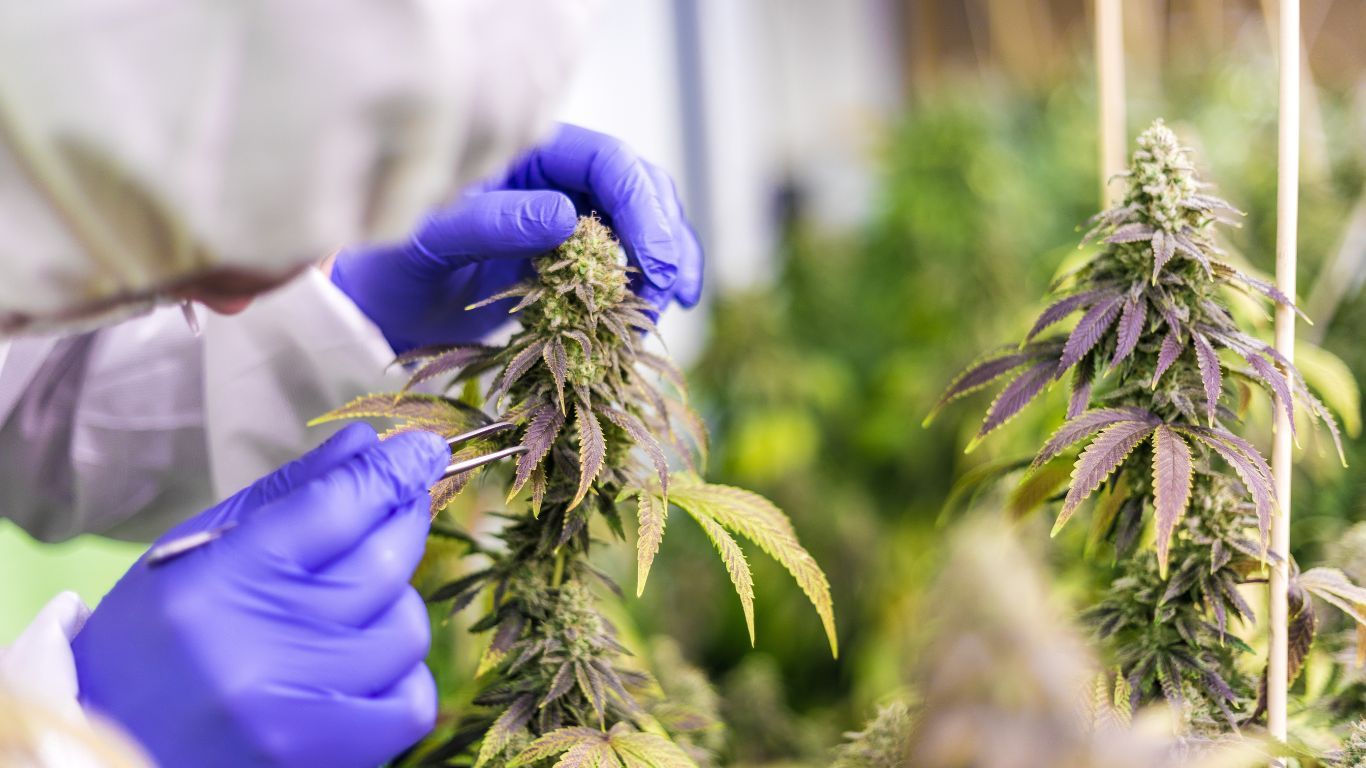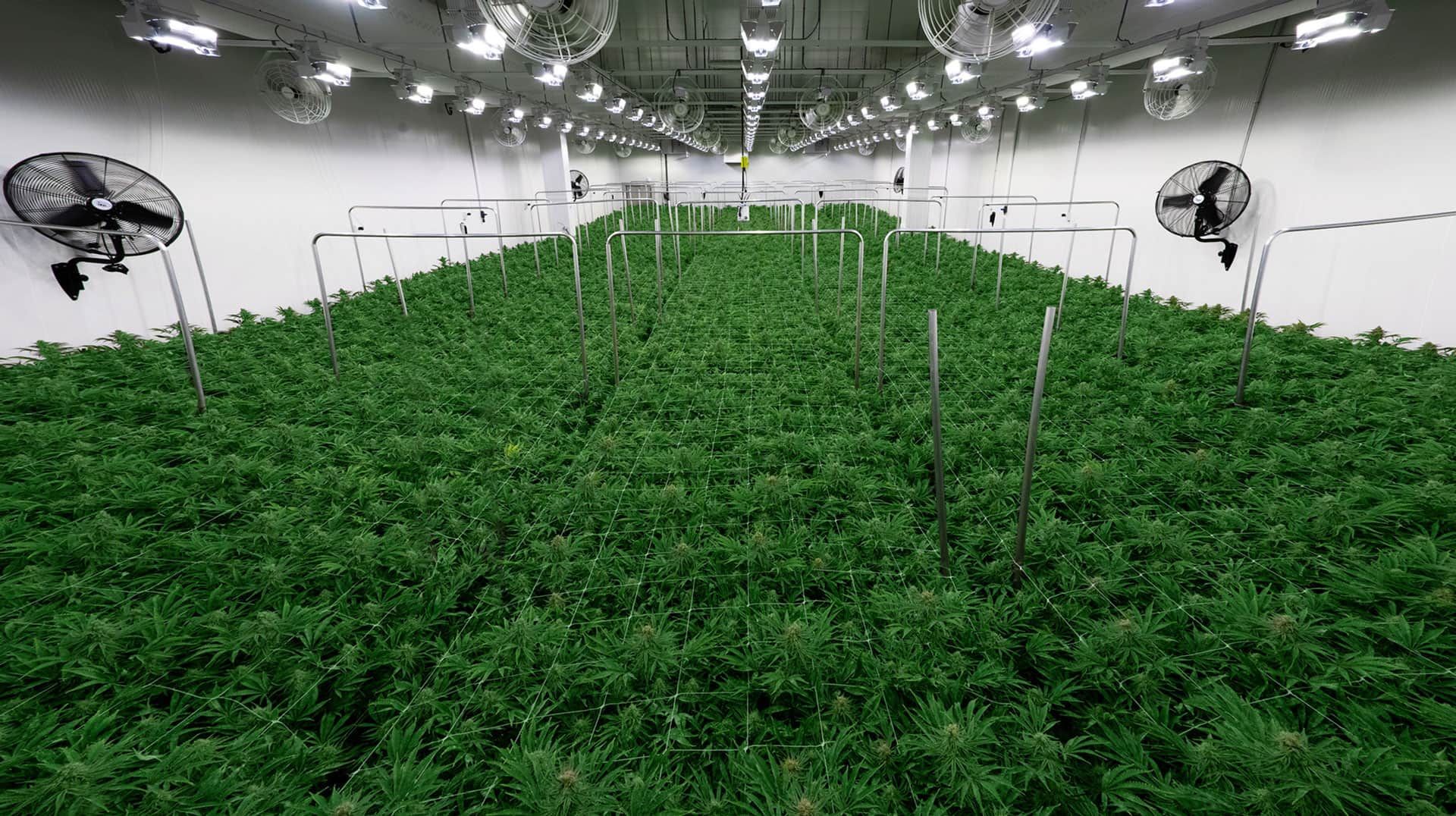
One processor who works with several micro cultivators and recently undertook an extensive product recall, says they have learned several valuable lessons about the process they think other micros can learn from.
Mark Hauk, the CEO of Shelter Market, a third-party processor and medical sales retailer who sells products from micro and standard licence holder partners, says their recent recall of a North 40 batch of dried flower was a steep learning curve that has led the company to do extensive internal reviews of how they intake and process products, as well as how they deal with complaints about product.
Note: Shelter has entered into a binding agreement to purchase Agro Greens Natural Products Ltd. While awaiting regulatory approval for the transaction to close, Shelter has licensed its assets and is providing consulting services to Agro Greens.
Right before Christmas, Hauk says he and his team became aware of a popular post on social media showing what appeared to be mould in a small bud from cannabis that had been purchased through Shelter’s medical platform. Shelter quickly reached out to the person online and asked them to send them the product so they could examine and test it themselves.
“We followed up immediately with that customer and determined that the complaint and concern was credible and was from a long time customer of ours,” says Hauk. “So everything looked like it warranted further investigation.
“Out of an abundance of caution and because we take safety very seriously, especially for our medical patients… even though we weren’t mandated by Health Canada to take the steps we wanted to take, we decided to take some action on our own because we felt that the complaint was credible enough for us to act on. So the actions we decided to take internally were to notify all the medical customers who had purchased the product that a complaint had been reported to us and we were taking it seriously and investigating it.
“We also followed up with the retailers to which we had sold the product to let them know the same thing – that we had a suspicion of a potentially contaminated product on the market and that we recommend they pause the sale of the product until we figure out what’s going on.”
“In hindsight now, the reality is if we had done things differently we (might) have not been forced into a recall.”
Mark Hauk, Shelter Cannabis
This proactive process, says Hauk, actually ended up forcing their hand in issuing a full product recall through Health Canada. Had they dealt with the one report as an isolated incident, he says, they might not have had to go as far as an official recall.
“On the heels of taking those steps of notifying the medical consumers and our recreational stores, we were also in contact with Health Canada right away. And our first conversation with Health Canada was that (they told us that) because we had taken those steps internally, that as far as they were concerned we had already taken steps to initiate a recall and that we must do so at that time. So at that point we went full voluntary recall.”
“In hindsight now, the reality is if we had done things differently we (might) have not been forced into a recall.”
Although in retrospect he says he thinks addressing the issue as a one-off rather than taking their own steps to contact all consumers and retailers involved might have saved them the time and money of a full product recall, he’s not sure he would have done anything different.
Even when things are perfect in our world and can check all the boxes…because it’s agriculture, there’s still a chance there’s going to be instances of spot mould and the fallout of that happening moving forward is just so great that we don’t feel we can take that risk.
Mark Hauk, Shelter Cannabis
“I won’t say it’s a lesson learned because I’m not so sure we wouldn’t do it again the way we have, but that is a lesson from all of this as we debrief. In hindsight, had we not taken those steps out of an abundance of caution to notify people, that it is likely that we would have never had to initiate a recall. But I don’t know that we would have done things differently because we still care about the product we put out there and our consumers.”
“Now that enough time has elapsed, we have been able to get these samples back from consumers who had complained about what they thought to be visible mould. We also took additional samples from our own retention sample, we took samples from additional closed packages that were still on our medical shelves, and sent all those samples for testing and lo and behold this past Thursday (January 14) morning we got all those samples back and everything has passed.”
One frustrating aspect of the entire issue, says Hauk, is that often the general public or even the media, misrepresents or exaggerates the cause and extent of these kinds of instances. Although some might place the blame for mouldy cannabis flowers on the turnaround for product, or the packaging requirements from Health Canada, he says Shelter has a turnaround of around one month from receiving a product to getting it in the hands of consumers, which is not nearly long enough to trigger a major outbreak of mould.
Ultimately, he thinks consumers need to understand that cannabis is an agricultural, biological product and is always going to be susceptible to isolated incidents like this, no matter how careful all the processes are to mitigate against it. Although consumers should obviously contact a producer if they find a potential problem with their product, it should be viewed through the lens of any other agricultural product.
“I think we need to be careful about those things because the lesson we learned here is that even when all those conditions are optimal insofar as its fresh product coming into the facility and packaged within a week in sterile conditions, we can still see isolated instances like this.
“The product is being grown to standards, cured to standards, transported to standards. It passes microbials, it lands in the facility fresh, it’s been stored properly, processed within a week properly, packaged properly, transported properly and into medical or rec consumers hands all inside of 30 days, or in some instances inside of 21 days. So even when all those things are optimal, and perfect, it’s agriculture and you can still end up with spot cases of mould. And I think that’s the lesson for us to be learned here.”
In a previous life I dealt with these exact scenarios many dozens of times over. And any instance I’ve been involved with or been aware of in the legacy space, we didn’t do things a whole lot differently than we do them now.
Mark Hauk, Shelter Cannabis
Hauk, who is no stranger to the retail cannabis market in the pre-legalization days, says this is no different than isolated product issues he has seen in that space, as well.
“This industry’s been around for many, many years prior to Canada legalizing it and these issues are not new,” continues Hauk. “I can say that yes, in a previous life I dealt with these exact scenarios many dozens of times over. And any instance I’ve been involved with or been aware of in the legacy space, we didn’t do things a whole lot differently than we do them now.
“So in the past if we had any reports of potentially contaminated product we would investigate those with all seriousness—even though we were not regulated by Health Canada at that time— and every time we were able to ascertain… that fortunately they all were limited instances of spot mould and we never found a problem that was prevalent enough to take the full step of recalling all the products and were able to deal with it on a one-to-one basis.”
The current conversation he says Shelter is having—and he thinks is an important issue for other micros or standard licence holders to consider—is whether they need to implement a new rule of requiring any product they take on as a processing partner be remediated in some way, either through irradiation, e-beam or otherwise.
The next step of course is to ask what we change moving forward (given) this particular incident and the financial burden this has presented. We’re a small startup and we’re not yet cash flow positive so these types of financial losses are very impactful to our world
MArk Hauk, Shelter cannabis
“The simple answer is we put in a blanket policy where you’re sterilizing all cannabis that’s coming through the door that we’re processing,” says Hauk. “We’ve not wanted to do that for the past year for the obvious reason that there are concerns around any sort of… potential for any degradation of terpenes. So we’ve resisted not wanting to blanket sterilize but in learning this lesson that even when all the conditions are perfect, it’s agriculture and we’re still going to get spot mould.”
But ultimately that could end up having to be Shelter’s policy, he says. The cost of a recall of this size has been “in the tens of thousands of dollars”, says Hauk at the end of the day, mitigating against that kind of financial burden is a real priority for a small company.
So the next step of course is to ask what we change moving forward (given) this particular incident and the financial burden this has presented. We’re a small startup and we’re not yet cash flow positive so these types of financial losses are very impactful to our world. And not to be dramatic but if we suffered additional losses like these that increased in size, our company honestly might not survive. So it is that serious for us when we consider how we mitigate these situations moving forward.”
“Even when things are perfect in our world and can check all the boxes…because it’s agriculture, there’s still a chance there’s going to be instances of spot mould and the fallout of that happening moving forward is just so great that we don’t feel we can take that risk.”
Hauk says Shelter has since become aware of complaints on at least two other products they have sold, one from Habitat and one from Simply Bare, and have taken steps to address the issue on a more limited basis as they haven’t’ seen evidence of it being widespread.












